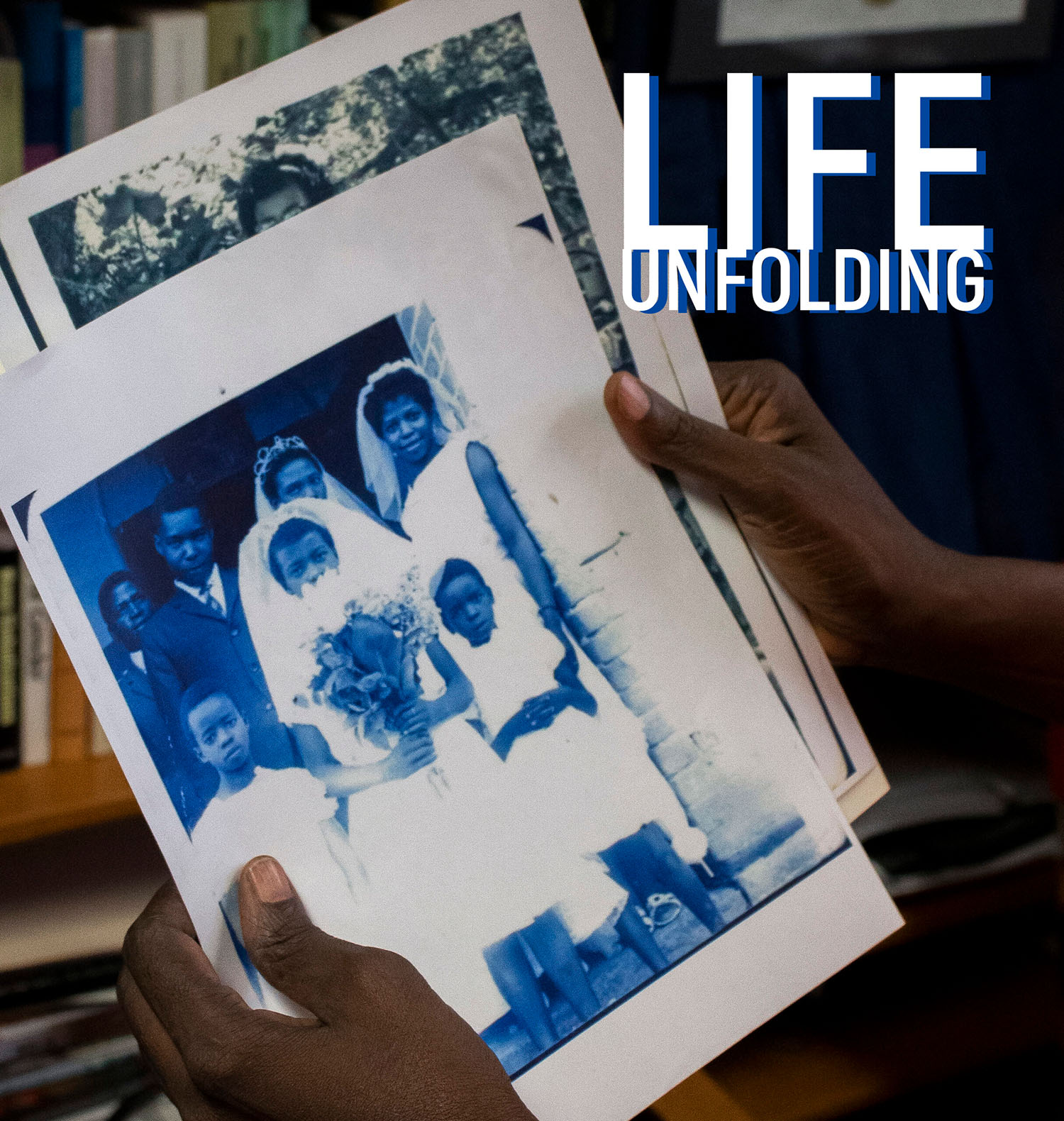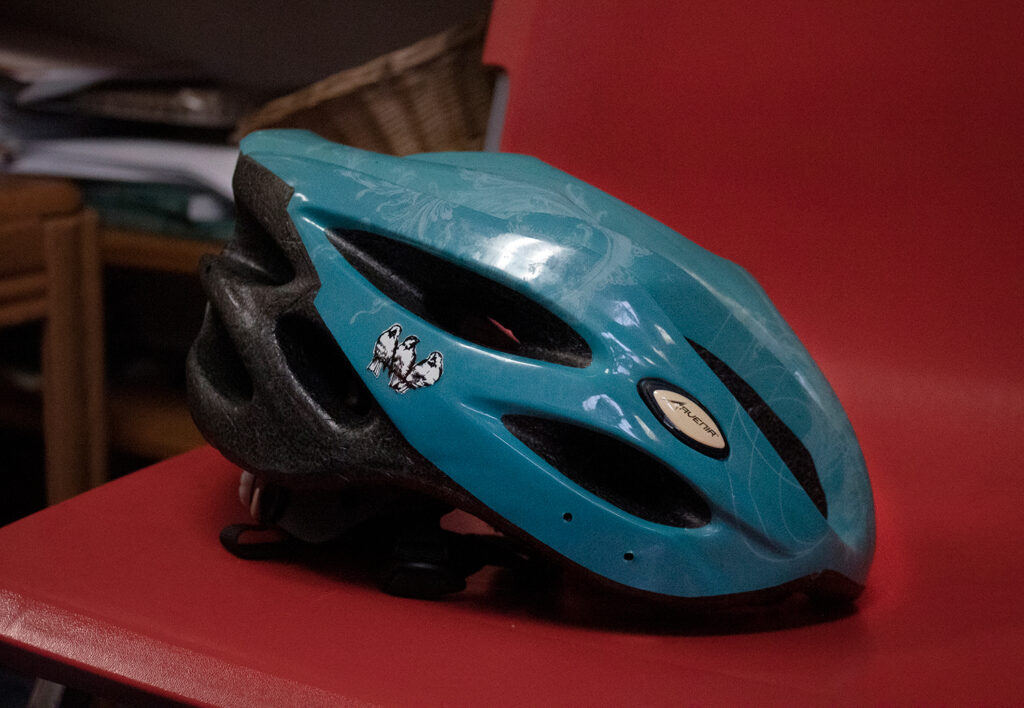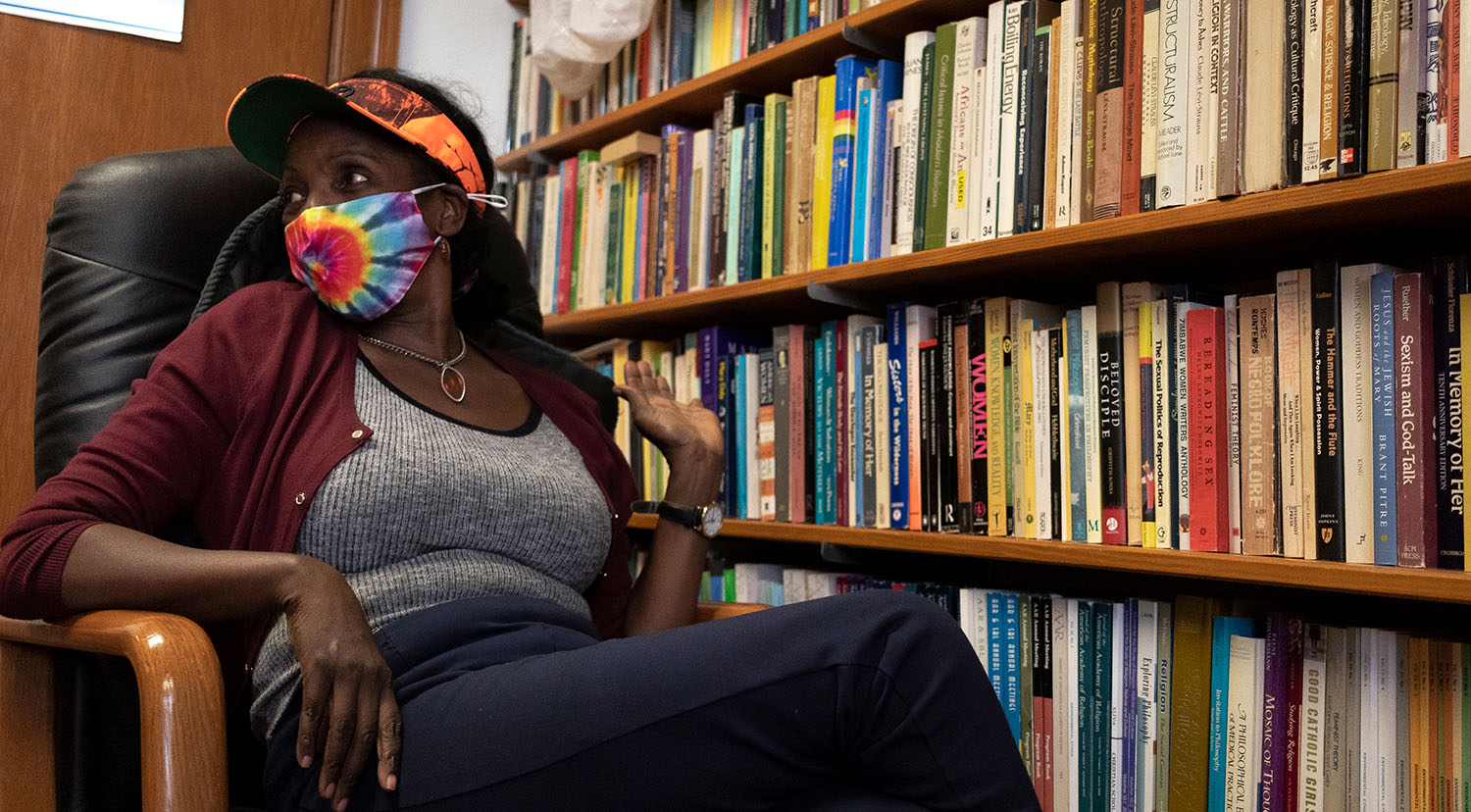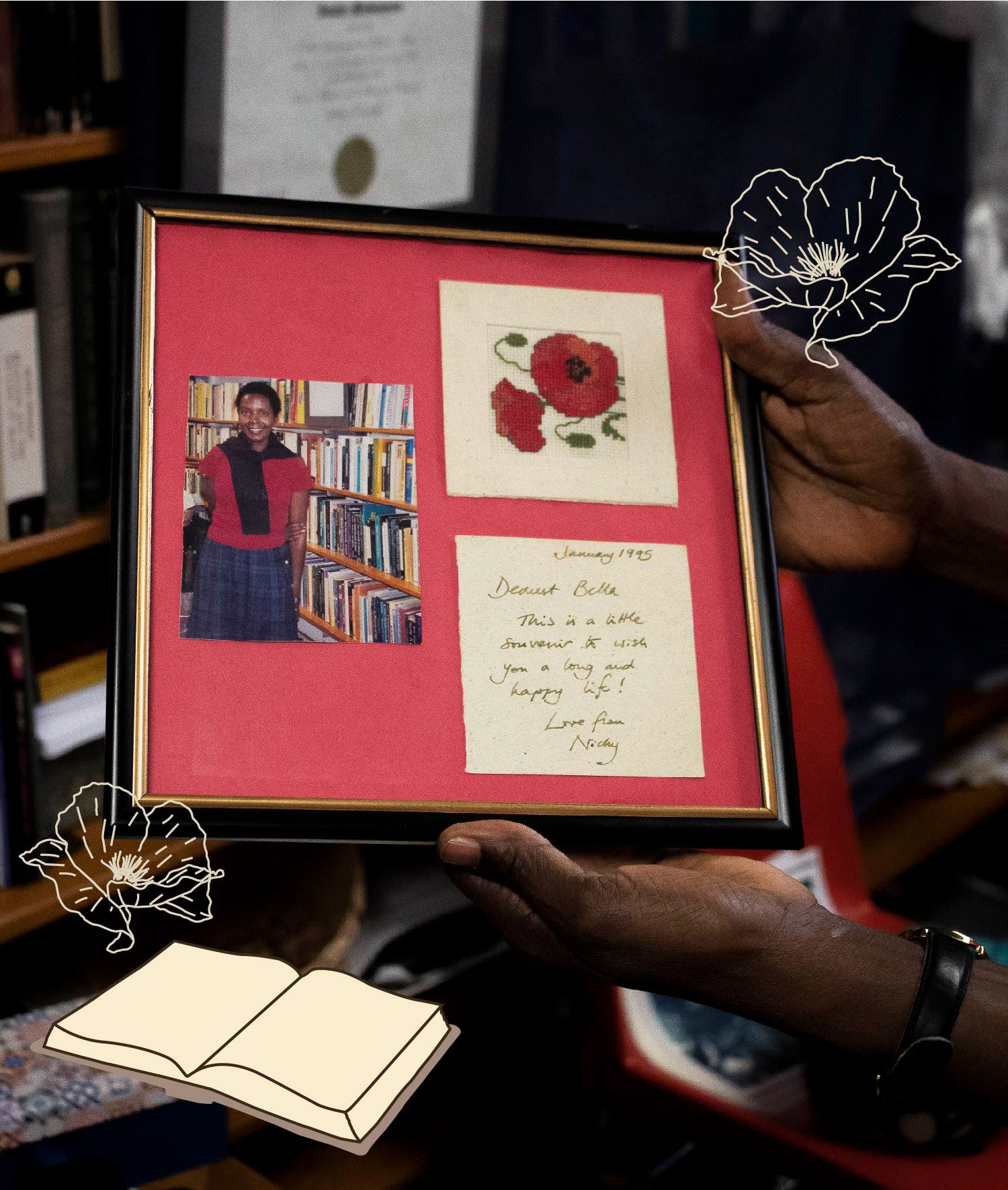Mukonyora collected many pictures over the years, each encapsulating a vivid memory in her life. Through pictures of her daughter, her family and her former husband, she is comfortable sharing her adversities. Although hard times have befallen her, she never stopped smiling or finding the blessings within the pain.
“We have things that hurt and disappoint us, but we still try to be positive,” Mukonyora said.
Of the sentimental objects she shared, one of the most special to her was a poem she had saved from her deceased brother. Before his passing, he had left the poem, “Desiderata” by Max Ehrmann, in the front of his diary for his family to read.
“You are a child of the universe,
no less than the trees and the stars;
you have a right to be here.
And whether or not it is clear to you,
no doubt the universe is unfolding as it should.”
It wasn’t until two years ago that Mukonyora became aware of this poem when her sister sent her a copy of it.
“I wanted to cry all day because I felt like he was talking to me,” Mukonyora said. “I was the little one, always very confused. I didn’t understand death at that age. All I knew was that I looked up to him to answer questions about our family. I grew up not being able to see my brother, and that was the hardest part.”
Mukonyora makes meaningful connections everywhere she goes, and she has left a lasting, positive impact on both students and colleagues in her department.
“Her personality is very endearing, and she treats everyone with love and respect,” Anton said. “She loves her students, and she would do anything to help them learn and feel welcome. She has a huge heart.”
Mukonyora ultimately sees teaching as a way to help her and her students grow.
“I love talking to my students with all these ideas I’ve read and asking what they think,” Mukonyora said. “It’s helping me as much as I am helping them find themselves. I like to research and read, and learn to communicate with students, but it’s about life, basically. How we can come together to build a better world.”




